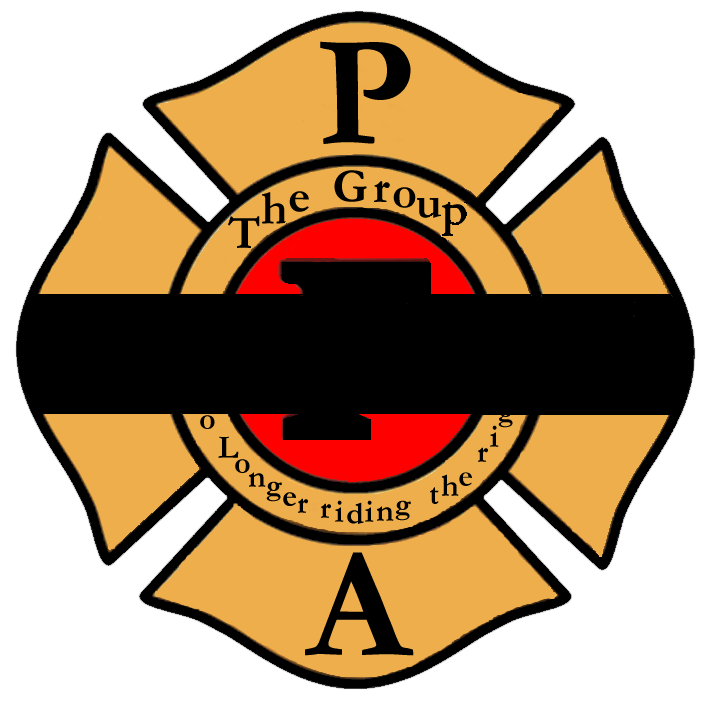
Pensioner's Association
"The Group"
No Longer Riding the Rigs

|
|
|
|
 |
| Ian Gray |
| Last Alarm | ||
| Ian Gray | ||
| February 1, 1948 - August 26, 2000 | ||
| Service Dates | ||
| October 23, 1967 to December 31, 1969 | ||
| December 3, 1973 to August 26, 2000 | ||
| L.O.D.D. | ||
 |
||
|
DAVID MCLAUCHLIN AND SANDRA BARTLETT Deadly Duties After attending the funeral of a friend who died of brain cancer, David McLauchlinlearned something astonishing that prompted him to ask questions about health risks faced by fire fighters. The series of stories was aired during the second week of February, 2001, on CBC national radio News and for 2 nights on CBC-TV’s The National. The stories arose from a chance remark during a conversation following a funeral in Hamilton six months before. It was a funeral for Ian Gray, a senior firefighter with the Hamilton fire department. He’d been diagnosed with primary brain cancer 14 months earlier. With the support of his family and friends, his medical team, and many colleagues on the department he put up a quiet and determined fight. His death brought a lot of people together to talk about his spirit of adventure, his work saving individual lives and protecting property, and his contribution as an environmental activist. Some who attended the funeral that day were firefighters from across Ontario who gathered to comfort Ian’s widow and children, and to console each other. Ian’s death made them talk about other firefighters with brain cancer and a form of leukemia. Every firefighter gathered around the sandwich table that afternoon seemed to know someone in a fire hall somewhere,either recently diagnosed or having already died. A union representative said the two relatively rare forms of cancer are so common among senior firefighters that in Ontario they’re considered a compensable workplace injury. This startled me: A form of cancer that is rare in the general population is considered so common among this group of workers that it’s a workplace injury? I wondered if people in general found out about this if they’d react with similar amazement. In the following weeks I contacted some of the firefighters who’d been there to try to verify what they were saying. I talked to the Ontario Workplace Safety Insurance Board about the origins of the policy. I met with firefighters who were fighting to have claims recognized. I talked with epidemiologists in Canada and the United States with a particular interest in this workplace disease. I found out that at least 12 studies verified the association between long exposure to chemical fumes and smoke among the urban firefighter, as well as two forms of cancer: glial blastoma,otherwise known as primary brain cancer, and non-hodgkins lymphoma, respectively. Each answer led to more questions. Fire fighters work around smoke. So why not lung cancer? The fact is that firefighters are much healthier than the average population and fewer smoke. The kind of long-term exposures they have to fumes of burning plastics are associated with the cancer types they experience. If these deadly cancers are part of the job description of these public employees, shouldn’t the public know about it? Why is this a policy in Ontario and not everywhere else? Are there prevention measures, which are not being taken? Along the way occupational disease specialists and firefighter unions helped me. Some individual firefighters, who wanted to protect the privacy of their colleagues and families helped me off-therecord, did not want their stories made public. I also encountered official medical and political people who downplayed the significance of the studies and the larger problem to which they pointed. But another reporter,Dr Brian Goldman who was then with CBCs The National, was stunned by the information I brought to him. He’d never heard of this problem before. Goldman helped me do some additional digging, which verified the broader picture. We conducted some of the same interviews together, and agreed to break the news at the same time on radio and television. At one point I was overwhelmed with information. There’d been a 3-day chemical fire in Kitchener in the 1980s, followed by the diagnosis of among 24 firefighters and police officers with the cancers. Their claims were being consistently opposed. Sometimes I got bogged down in details. The fights over compensation at times revolved around conflicting science and medical interpretation. One of many sides seemed to always solicit my support when they saw the questions that were being asked. Sometimes firefighters’ union locals were in conflict with municipal or provincial political personalities, apart from compensation policies. There were individuals who are responsible for adjudicating claims who were more sympathetic to the firefighters who didn’t quite fit the criterion. However, those adjudicators were opposed to others who appeared to be eligible for compensation.There seemed to be no explanation for the discrepancy. I found myself at times too locked in on the details and history of one case,while the bigger picture was becoming blurred. Senior editor, Susanne Reber, listened to the development of all the tangents and encouraged me to keep going. I knew I was emotionally involved in the story because of the death of my friend, and the question of my own conflict of interest had to constantly be examined. When I met families who had suffered painful loss, when I met with firefighters who were living on borrowed time, Reber reminded me they were all part of an important and emerging picture. I was tempted to get into the political genesis of the Ontario policy, which presumes the cancers in firefighters with long service are caused by their work. I also thought about looking into stories of threatened political and legal pressure from both union and government sides. I’m sure there are more stories to tell, and others may want to do some digging. But as for me, I wanted to keep with what I sensed was an original piece of public information, so that’s what I did. Other jurisdictions in Canada have not followed Ontario’s example. It’s possible Ontario firefighters are better organized because the province has more urbanized cities for firefighters to work. So the fires could be more toxic. There’s clearly a story in every jurisdiction. More than a dozen states in the U.S. have presumptive policies similar to Ontario’s, and it’s Other colleagues added their stories. Curt Petrovich,who was then CBC Radio’s national reporter in Winnipeg, discovered similar cases of cancer in a firehall,and met the families involved. Manitoba had a similar ‘presumptive’ compensation policy among senior firefighters,which had been challenged by the City of Winnipeg and struck down in the courts. Curt’s commitment to telling the heart-wrenching story in Manitoba broadened it past Ontario. When it came to conceiving and packaging all the data I’d amassed, investigative producer, Sandra Bartlett, moved temporarily to Montreal to help me think through the best, most streamlined way to present the stories. Since the stories aired, several fire stations have requested copies to be used for the purposes of training and awareness. And across Canada many more senior firefighters have been diagnosed with the killer disease that’s become associated with their long years of service. After the stories were aired, I was contacted by families in various parts of Canada who wanted more information. Some of them had no idea this kind of work may have been responsible for the death of their father or husband. It’s clear that the most toxic stage of a typical fire is the point at which it’s smouldering. The drama of the engulfing flames has passed, and the cleanup begins.It’s called the ‘knock-down’, when fumes have stopped shooting skyward. Instead,they concentrate near the ground. Despite clear research that indicates this is the time firefighters should wear breathing apparatus, many fire departments still do not invest in the proper masks and air tanks, site captains don’t enforce the procedures with exhausted crews, budgets don’t allow for fresh back-up and reinforcement. There are still fire departments which don’t refill half-depleted air tanks every shift, a policy which guarantees firefighters will end up exposed to the most harmful stages of the fire with no auxiliary air. Several union representatives continue to work on the files of retired or deceased individual firefighters, attempting to bring forward claims on behalf of family members and their survivors. But in other cases, I have been told families simply don’t want to relive the pain associated with the suffering of a well-respected and loved firefighter. They’d prefer to just let it go. Sometimes I remember my old high school friend and fishing buddy and I know exactly how that feels .But I’m glad I did the work on these stories, because firefighters are public servants who don’t deserve to be repaid this way for their dedication. You can hear the story by going to the CBC Web sites: |
||
| WORLD THIS WEEKEND TORONTO | ||
|
|
Hamilton Fire Department Pensioner's Association - "The Group" |
|
||
| Web Design by: White Oak Webscapes - Copyright © 2019 |